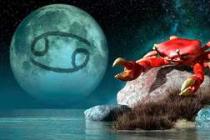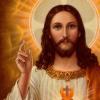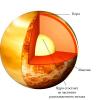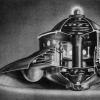In the person of Daniel Defoe (1660 - 1731), a talented publicist, journalist, writer, initiator of the novel of modern times, the Enlightenment in England at its early stage found one of its brightest representatives. Defoe's work was inspired not so much by book as by practical, everyday experience and was addressed not to a select circle of connoisseurs, but to a mass democratic audience: already during the life of the author of his books, articles, pamphlets became the property of the widest readership in England and abroad.
Defoe's book appeared on the crest of a powerful wave of travel literature that swept England at that time - authentic and fictional reports of circumnavigations, memoirs, diaries, travel notes of successful merchants and famous sailors. However, no matter how diverse and numerous the sources of "Robinson Crusoe" were, both in form and in content, the novel was a deeply innovative phenomenon. Having creatively assimilated the experience of his predecessors, relying on his own journalistic experience, Defoe created an original work of art that organically combined an adventurous beginning with an imaginary documentary, the traditions of the memoir genre with the features of a philosophical parable.
The idea of "Robinson Crusoe" was prompted by Defoe by a real incident: in 1704, the Scottish sailor Alexander Selkirk, having quarreled with the captain of the ship, landed on an unfamiliar shore with a small supply of provisions and weapons, and for more than four years led a hermit life on the island of Juan Fernandez in pacific ocean until he was picked up by a passing ship under the command of Woodes Rogers. Defoe could get acquainted with the history of Selkirk from the book by Rogers "Sailing around the world" (1712) and from Steele's essay in the magazine "The Englishman" (1713).
This story served the writer as a starting point for a detailed artistic narrative, imbued with the poetry of travel and adventure, and at the same time containing a deep socio-philosophical meaning. Having forced his hero to live twenty-eight years away from civilization, Defoe carried out an enlightening experiment on "human nature", subjected it to a kind of test, sought to clarify for himself and his readers the decisive factors for human survival in this emergency.
In the island episode of the novel, this heroic chronicle of Robinson's "works and days", the author poeticized the history of man's centuries-old struggle for existence, glorified the invincible power of his thought, knowing and conquering nature, glorified the element of free creative labor. Labor and hard work of thought help the hero not only to survive, but also not to run wild, not to fall into madness, to preserve his human appearance. It is the work and creative activity of the mind that, according to the writer, form the basis for the transformation of the world and the spiritual elevation of man.
Defoe embodied in the novel a typical enlightenment concept of the history of human society. The life of his hero on the island in a generalized, schematic form repeats the path of mankind from barbarism to civilization: first, Robinson is a hunter and fisherman, then a cattle breeder, farmer, artisan, slave owner. Later, with the advent of other people on the island, he becomes the founder of a colony arranged in the spirit of Locke's "social contract".
At the same time, it is important to emphasize that Defoe's hero from the very beginning of his stay on the island is not a "natural", but a civilized person, not the starting point of history, but the product of a long historical development, an individual, only temporarily placed in a "natural state": he is armed labor skills and experience of his people and successfully uses the equipment, tools and other material values found on the wrecked ship. Separated from society by the will of circumstances, Robinson never ceases to feel like a particle of it, remains a social being and considers his loneliness as the most difficult test that has fallen to his lot. Unlike Rousseau and Rousseauists (who built their ideal " natural man"Not without looking back at the" island robinsonade ") Defoe never doubted the advantages of civilization over the primitive state and was a staunch supporter of material and technological progress.
Robinson is a hard worker, but at the same time he is "an exemplary English merchant". His entire mindset is characteristic of the British bourgeois of the early 18th century. He does not disdain either planting or the slave trade and is ready to go to the ends of the world, driven not so much by the restless spirit of quest as by the thirst for enrichment. He is thrifty and practical, diligently accumulating material values. The possessive streak is also manifested in the hero's attitude to nature: he describes the exotically beautiful corner of the earth, into which fate has thrown him, as a zealous owner, compiling a register of his property.
Robinson even builds his relationship with God on the principle of a business contract, in which "good" and "evil", like profit and loss items, balance each other with accounting accuracy. As befits a bourgeois puritan, Defoe's hero willingly turns to the Bible, and in difficult times appeals to God. However, in general, his religiosity is very moderate. The sensualist-practitioner of the Locke school, accustomed to relying on experience and common sense in everything, constantly gains the upper hand in him over the puritan-mystic, who hopes for the goodness of providence.
Interesting in the novel are Robinson's conversations with Friday about religion: the "natural man" Friday, anticipating Voltaire's "Innocent", with his naive questions, easily confounds Robinson, who intended to convert him to Christianity.
Enlightenment realism (18th century): the main thing in a person is the mind; reliable reproduction of reality; interest in the image of an ordinary person; novel-education (the formation of a person).
Revealing in detail in the novel the relationship between Robinson and Friday saved by him from cannibals, Defoe seeks to emphasize the noble civilizing mission of the English bourgeoisie. In his depiction, Robinson, although he turns the young savage into a humble servant, treats him gently and humanely, introduces him to the blessings of spiritual and material culture and finds in him a grateful and capable student. Clearly idealizing the image of Robinson, the author, as it were, teaches a lesson to the European colonizers and slave traders, teaches them humane treatment of the natives, condemns the barbaric methods of conquering wild tribes.
Defoe's hero unexpectedly turns out to be a student of the enlightening philosophy of the 18th century: he is a cosmopolitan and grants the Spaniards equal rights with the British in his colony, he professes religious tolerance, respects human dignity even in "savages" and is himself filled with a proud consciousness of personal superiority over all the autocrats of the earth. "Robinson Crusoe" is connected with many threads philosophical ideas John Locke: in essence, the entire "island robinsonade" and the history of the robinson colony in the novel sound like a fictional retelling of Locke's treatises on government. The very theme of the island, which is out of contact with society, was already used by Locke in his philosophical writings two decades before Defoe.
Defoe is also close to Locke's educational ideas about the role of labor in the history of the human race and the formation of an individual. It was not for nothing that Rousseau called Defoe's novel "the most successful treatise on natural education" and assigned him the most honorable place in the library of his young hero ("Emile, or On Education", 1762). The ingenuous story of how Robinson built his hut, how he burned the first jug, how he grew bread and tamed goats, how he built and launched a boat, for almost three centuries continues to excite the imagination of readers of all ages. It has not lost its enormous educational value for children and youth to this day.
The exclusivity of the situation in which Defoe put his hero, removing him from the world of money and placing him in the world of work, allowed the author to most clearly highlight in the character of Robinson those qualities that are manifested in free from commercial calculations, universal in its essence, creative, creative activities. The pathos of knowledge and conquest of nature, the triumph of free human labor, reason, energy and the will to live give Defoe's book an extraordinary freshness, poetry and persuasiveness, constitute the secret of its charm and the guarantee of its immortality.
This novel is about a man whose dreams have always been turned towards the sea. Robinson's parents did not approve of his dream, but in the end Robinson Crusoe ran away from home and went to sea. On the very first voyage he failed, his ship sank. The surviving members of the crew began to shun Robinson, as his next voyage failed.
Robinson Crusoe was captured by pirates and stayed with them for a long time. Having escaped, he sailed the sea for 12 days. On the way he met natives. Having stumbled upon the ship, the kind captain took it on deck.
Robinson Crusoe stayed in Brazil. Began to own a sugar cane plantation. Robinson became rich and became a powerful man. He told his friends about his adventures. The rich became interested in his story about the natives he met during the escape from the pirates. Since the Negroes at that time were the labor force, but they were very expensive.
Having collected the ship, they set off, but according to the ill-fated fate of Robinson Crusoe, they failed. Robinson ended up on the island.
He settled quickly. He had three houses on the island. Two near the shore to see if a ship sailed by, and the other house in the center of the island, where grapes and lemons grew.
After staying on the island for 25 years, he noticed human footprints and bones on the northern coast of the island. A little later, on the same bank, he saw smoke from a fire, climbing a hill, Robinson Crusoe saw savages and two prisoners through a telescope. They had already eaten one, and the other was waiting for its fate. But suddenly the prisoner ran towards Crusoe's house, two savages ran after him. This pleased Robinson, and he ran to meet them. Robinson Crusoe saved the prisoner, naming him Friday. Friday became Robinson's roommate and worker.
Two years later, a boat with the English flag sailed to their island. There were three prisoners on it, they were pulled out of the boat and left on the shore, while others went to inspect the island. Crusoe and Friday approached the prisoners. Their captain said that his ship had mutinied, and the instigators of the mutiny decided to leave the captain, his assistant and passenger on this, as they thought, uninhabited island. Robinson and Friday caught them and tied them up, they surrendered. An hour later, another boat sailed, they were also caught. Robinson Friday and several other prisoners sailed in a boat to the ship. Having successfully captured it, they returned to the island. Since the instigators of the rebellion would have been executed in England, they decided to stay on the island, Robinson showed them his possessions and sailed to England. Crusoe's parents have long since died, but his plantation still remains. His mentors became rich. When they learned that Robinson Crusoe was alive, they were very happy. Crusoe received a significant amount of money in the mail (Robinson did not dare to return to Brazil). Robinson later sold his plantation, becoming rich. He got married and had three children. When his wife died, he wanted to return to the island and see how life was there. Everything flourished on the island. Robinson brought everything he needed there: several women, gunpowder, animals, and more. He learned that the inhabitants of the island fought with the savages, winning, took them prisoner. In total, Robinson Crusoe spent 28 years on the island.
(See the analysis of the work in the notebook)
The 18th century brings a new world outlook to the literature of Europe. Literature enters the era of enlightenment, when the ideology of feudalism fades into the background, and the cult of universal reason becomes the main ideological basis of the enlighteners.
Despite the triumph of the new principle of worldview and worldview, there were individuals who represented them with different shades. Some argued that a person is directly formed by the Habitat, but progress is certainly driven by the mind. This part of the enlighteners believed that opinion rules the world, and therefore people need to instill an understanding of certain truths, to enlighten them. Thus, enlightenment was considered the engine of historical progress.
Others adhered to the concept of natural man and "historical man", infected with the vices and prejudices of civilization, opposed the "natural man", endowed with virtuous natural qualities.
Thus, the Enlightenment of the 18th century was not the spokesman for a single idea. Here and there there was a controversy between exponents of different points of view. Our interest is in the controversy between D. Defoe and J. Swift.
D. Defoe at the beginning of his novel "The Adventures of Robinson Crusoe" shows us a hero in the world of civilization. Moreover, the hero does not want to accept the conventions of society, he refuses a career as a lawyer, and to the arguments of his father (about his possible trouble-free life as a citizen with an average income), he responds with a desire to travel. His desire for the natural element - the sea - is being realized. He, seduced by the opportunity to travel for free on a ship, goes to sea. The sea is a natural element. And, for the first time being on a "natural" background, Robinson is not able to resist him. HE, as a man of civilization, cannot penetrate into the struggle of sailors with the elements for his own life, and the element, as a natural principle, does not tolerate the "civilized" Robinson. This is confirmed by the second storm in which he fell. Ingratitude to parents, frivolity, self-interest are not compatible with natural state, to which Robinson aspired, leaving their homes.
As a result of misadventures, the hero finds himself completely cut off from civilization on a desert island (except for the things he brought from the sunken ship as its elements). Here Defoe, relying on the concept of a natural person, aims to show a person in his natural environment.
And, indeed, the hero, at first completely desperate, gradually draws closer to nature. At the beginning of the novel, he admitted that he would never have the patience for any business. Now, thanks to their mental capacity and the promptings of nature, he patiently carried out every task. After a thunderstorm, afraid of an explosion of gunpowder, he deepened the cave, after an earthquake, afraid of being buried alive, he strengthened the dwelling, afraid of getting sick from rain and heat, he made clothes. The actions of the hero obeyed only fear and necessity. He did not feel any envy, no greed, no greed, he experienced only fears. After the most "terrible" fear - the fear of death, he turns to faith. And, reading the Bible, he realizes his unrighteous life, finds peace.
Here, it would seem, before us appeared the idyll of the upbringing of man by nature. But not every person, getting into the natural conditions of development, will be able to achieve progress. After all, the savages who from time to time visited the island of Despair also lived in natural conditions. However, the hero did not consider them people for the barbaric habit of eating their own kind. But soon, having become acquainted with the savage he had saved, he became convinced that he had even more virtuous qualities than any person from a civilized society. Robinson succeeded in setting Friday on the path of true progress. He "enlightened" him, introducing him into the world of religion. There is no end to this essay. But the most important thing is to say that a person, getting into "natural" conditions, becomes better.
The main content of the novel is Robinson's life on a desert island. The main theme of the novel is the struggle of man with nature. But it takes place in such an extraordinary environment that every most prosaic fact - the making of a table and a chair or the firing of pottery - is perceived as a new heroic step by Robinson in the struggle to create human conditions of life. Robinson's productive activity distinguishes him from the Scottish sailor Alexander Selkirk, who gradually forgot all the skills of a civilized person and fell into a semi-savage state.
As a hero, Defoe chose the most ordinary person, who conquered life in the same businesslike way, like Defoe himself, like many others, also ordinary people of that time. Such a hero appeared in the literature for the first time, and for the first time everyday, labor activity was described.
Robinson, says Engels, is "a real bourgeois," a typical eighteenth-century English merchant and businessman. Engels notes that, once on a desert island, he "immediately, like a true Englishman, begins to keep records for himself." He perfectly knows the price of all things, knows how to make a profit out of everything, dreams of getting rich, subordinates his feelings to considerations of profit. Once on the island, he realizes himself as its owner. With all his humanity and respect for the human dignity of savages, he looks at Friday as his slave, and slavery seems natural and necessary to him. Feeling like an owner, Robinson with the people who later ended up on his island behaves like a master of the situation and demands obedience to his will from them. At the same time, he does not really believe the oaths of the repentant rebels from the ship and achieves their obedience, arousing in them fear of the gallows that awaits them in their homeland. Defoe criticizes one of the main doctrines of puritanism about the existence of evil. All these traits of a merchant, a planter, a businessman and a puritan give us an idea of the type of English bourgeois, a contemporary of Defoe. Before us is restored the historical picture of the activities of the young English bourgeoisie of the XVIII century.
But Robinson is a dual image. In addition to the features of the bourgeois and the hoarder, he has wonderful human qualities. He is courageous. He conquers fear, so understandable in his position, calling on the help of reason and will. Reason helps him to understand that everything that seems to him a miracle or an act of God's will is in fact a natural phenomenon. So it was when he saw cereals growing in the place where he poured out the grain. Fate was merciful to Robinson and allowed him to take advantage of the achievements of civilization on a desert island: he brought tools, household equipment and food supplies from the ship. But the far-sighted Robinson wants to provide for himself even in his old age, as he is afraid that he will live his whole life alone. He has to master the experience of a hunter, trapper, shepherd, farmer, builder, handicraftsman, and he amazing energy masters the skills of all these professions, showing a truly creative attitude to work.
Thus, as a "natural" person, Robinson Crusoe did not "run wild" on a desert island, did not succumb to despair, but created quite normal conditions for his life.
The Life and Amazing Adventures of Robinson Crusoe was Defoe's most important contribution to literature. Understanding his contemporaries very well, Defoe knew how great and natural their interest in travel was. England, rapidly turning into a bourgeois state, pursued a colonial policy, capturing and developing new territories. Equipped merchant ships in all countries of the world. On the seas and oceans, merchants behaved like pirates, and with impunity robbed foreign ships, became the owners of untold wealth. News often came that new lands had been discovered, first in one part of the world, then in another. All this inflamed the imagination, promised the brave extraordinary fortunes and unexpected enrichment, gave rise to a passion for travel. People read the editions of travel diaries and travelers' notes. Literature in which fictional characters acted no longer attracted readers: they wanted to know the truth about life, real and unvarnished, to know it from living people not invented by writers.
Defoe passed off his novel as genuine notes of a "sailor from York", and himself - just for their modest publisher. Fiction was taken for truth, and this happened all the more easily because Defoe's contemporaries, and himself, happened to see people who had spent several years on uninhabited islands. One such person was Alexander Selkirk, a Scottish sailor. For disobedience to the captain of the ship, according to the custom of that time, he was landed on the uninhabited island of Juan Fernandez in the Pacific Ocean. The case of Selkirk was described in one of the journals and in the notes of the captain who, after more than four years, found Selkirk and brought him on his ship to England. Selkirk went wild and almost forgot his native language.
The story of Selkirk undoubtedly influenced the conception of Robinson Crusoe. On the island of Robinson, which Defoe placed near the West Indies, near the mouth of the Orinoco River, the writer even transferred part of the flora and fauna that was on the island of Juan Fernandez and could not exist at all where Robinson lived. No one could catch Defoe's mistake - this part of the earth was still little explored.
Even when readers learned that The Adventures of Robinson Crusoe was the product of the writer's creative imagination, their interest in the novel did not fade. And now we are excitedly following the life of Robinson. Here he, a young man, is attracted to the sea, and no trials and obstacles can cure him of this passion. Here he is captured by pirates as slaves, and after a few years he runs away with the boy Xuri. Here is Robinson, the owner of a Brazilian plantation. How strong is his desire to acquire wealth! Here is a new terrible test in the midst of success - a storm and a shipwreck; the joy of salvation and the horror of loneliness on a desert island that replaced it. How simply and at the same time fascinating about everything is told. And how simple details and details create a picture full of drama! Consider, for example, such a case. Robinson, having escaped, searches for his companions and finds three hats, one cap and two unpaired shoes. A simple enumeration of things thrown ashore speaks eloquently of a human tragedy, that the people who owned the “unpaired shoes” are no longer in the world.
The main content of the novel is Robinson's life on a desert island. The main theme of the novel is the struggle of man with nature. But it takes place in such an extraordinary environment that every most prosaic fact - the making of a table and a chair or the firing of pottery - is perceived as a new heroic step by Robinson in the struggle to create human conditions of life. Robinson's productive activity distinguishes him from the Scottish sailor Alexander Selkirk, who gradually forgot all the skills of a civilized person and fell into a semi-savage state.
As a hero, Defoe chose the most ordinary person, who conquered life in the same businesslike way, like Defoe himself, like many others, also ordinary people of that time. Such a hero appeared in the literature for the first time, and for the first time everyday, labor activity was described.
That is why the first readers of the book believed so much in Robinson. Robinson's whole life on the island proves how much an ordinary person can do, how endless his possibilities are.
Robinson Crusoe is a book for all ages. Young readers are fascinated by the hero's story. Adults, moreover, are interested in all the philosophical and economic problems that are raised about her.
"Robinson Crusoe" was often quoted by Marx and Engels in their studies of the economics of capitalist society.
The classics of Marxism saw that both Robinson himself and his activities have not only universal significance, but also contain typical bourgeois features. Robinson, says Engels, is "a real bourgeois," a typical eighteenth-century English merchant and businessman. Engels notes that, once on a desert island, he "immediately, like a true Englishman, begins to keep records for himself." He perfectly knows the price of all things, knows how to make a profit out of everything, dreams of getting rich, subordinates his feelings to considerations of profit. Once on the island, he realizes himself as its owner. With all his humanity and respect for the human dignity of savages, he looks at Friday as his slave, and slavery seems natural and necessary to him. Feeling like an owner, Robinson with the people who later ended up on his island behaves like a master of the situation and demands obedience to his will from them. At the same time, he does not really believe the oaths of the repentant rebels from the ship and achieves their obedience, arousing fear in them of the gallows that awaits them in their homeland.
Like a true bourgeois, Robinson firmly adheres to the Puritan religion. Of interest are the disputes between Robinson and Friday about religion, in which the "natural man" Friday easily refutes the theological arguments of Robinson, who undertook to convert him to Christianity, and casts doubt on the existence of the devil. So Defoe criticizes one of the main doctrines of puritanism about the existence of evil.
All these traits of a merchant, a planter, a businessman and a puritan give us an idea of the type of English bourgeois, a contemporary of Defoe. Before us is restored the historical picture of the activities of the young English bourgeoisie of the XVIII century.
But Robinson is a dual image. In addition to the features of the bourgeois and the hoarder, he has wonderful human qualities. He is courageous. He conquers fear, so understandable in his position, calling on the help of reason and will. Reason helps him to understand that everything that seems to him a miracle or an act of God's will is in fact a natural phenomenon. So it was when he saw cereals growing in the place where he poured out the grain. Fate was merciful to Robinson and allowed him to take advantage of the achievements of civilization on a desert island: he brought tools, household equipment and food supplies from the ship. But the far-sighted Robinson wants to provide for himself even in his old age, as he is afraid that he will live his whole life alone. He has to master the experience of a hunter, a trapper, a shepherd, a farmer, a builder, a handicraftsman, and he masters the skills of all these professions with amazing energy, showing a truly creative attitude to work. Kornilova E. Daniel Defoe and his novel "The Adventures of Robinson Crusoe" // Defoe D. The life and amazing adventures of Robinson Crusoe, a sailor from York, who lived for twenty-eight years all alone on a desert island off the coast of America, near the mouth of the Orinoco River, where he was thrown out by a shipwreck, during which the entire crew of the ship, except for him, died; outlining his unexpected release by pirates; written by himself. - M.: Metallurgy, 1982. - S.319.
Thus, as a "natural" person, Robinson Crusoe did not "run wild" on a desert island, did not succumb to despair, but created quite normal conditions for his life.
Details Category: Adventure literature Posted on 02/01/2018 18:32 Views: 1468How many generations of people have read this book, written almost 300 years ago!
Why is it so attractive to readers? Of course, an adventure story from which it is impossible to break away. But not only.
Readers are attracted by the behavior and character traits of the protagonist - Robinson Crusoe. To live alone on an uninhabited island for almost 30 years and still remain a human being, to retain all the best human qualities in oneself, not to become savage, not to harden one's soul, not to lose hope for the best - this is amazing! And this is available only to a strong-willed person. 
No, this is not some kind of superman, this is an ordinary person, a romantic who has dreamed of sea voyages since childhood. It was very difficult for him on a desert island, more than once he was overcome by gloomy thoughts and feelings, but he did not allow himself to relax and lose his mental balance, so as not to run wild and lose his mind. As a result, he came out victorious in the fight against circumstances, the vicissitudes of fate, as well as with himself. “In moments of doubt, when a person hesitates, when he, so to speak, stands at a crossroads, not knowing which road to take, and even when he has chosen the road and is ready to enter it, some mysterious voice holds him back. . It would seem that everything - natural inclinations, sympathies, common sense, even a clearly conscious definite goal - calls him to this road, but meanwhile his soul cannot shake off the inexplicable influence of the outgoing pressure of an unknown force that does not let him go where he wants to go. he was determined to go. And then it always turns out that if he went along the path that he chose at first and which, according to his own consciousness, he should have chosen, it would lead him to death ... In moments of hesitation, boldly follow the suggestion of the inner voice, if you hear his, at least, except for this voice, nothing prompted you to do as he advises you, ”considered D. Defoe.
History of the creation of the novel
About the novel
Readers are first introduced to Robinson when he is 18 years old. Passionately dreaming of sea voyages, he leaves his parental home and goes on an adventure. Robinson did not immediately find himself on a desert island - this was preceded by numerous adventures and misfortunes: storms, captivity ... Then new adventures in the form of a profitable plantation in Brazil. But the main part of the novel is the story of the hero himself about life on a desert island.
He was able to survive because he carefully thought out his life and his capabilities: he had a clear daily routine, constant activities that helped him organize his life so that it would be useful, he did not allow himself to panic and morally weaken. From sunken ships, he took everything that could be useful to him on the island. So the Bible fell into his hands, it helped him to realize himself and gradually come to terms with his fate, and later even learn to consider himself happy - after all, he was given life, while all his comrades died. D. Defoe himself spoke about this as follows: “In every situation, something comforting will be found, if you search well.”
V last years stay on the island, Robinson was no longer alone: he freed Friday from cannibals and “tamed” him, then a Spaniard, an Englishman were released: Christians, a Catholic and a pagan (besides, a cannibal) gathered on the island, but no conflicts on religious grounds did not happen to them, because they were united by a common goal - to get out of here. They worked together, and everything else was secondary to them. Interfaith mutual misunderstanding and hostility is not natural, but a circumstance created by the people themselves.
Robinson Crusoe image

The image of Robinson is realistic. His romanticism remains with him even in adulthood - he did not stop his sea travels. But when certain circumstances come, his practical mind takes over, he tries to think through every detail in detail, to foresee every danger, of which there are so many on a desert island.
He was the youngest beloved and pampered son, but on the island he showed all his practicality in order to earn a livelihood. He persistently visits the sunken ship and stocks up with the necessary things, learns to make household items, various devices, sews clothes...
Of course, Robinson cannot be called an ideal person, if only because he goes on a trip, leaving his elderly parents who asked him not to do this. And his other actions can not always be called correct. But this is precisely the realism of this image - this is an ordinary person, with the shortcomings and positive qualities inherent in each of us.
Friday image

Robinson saves a young hostage (also, by the way, a cannibal, but from a different tribe) from the cannibal savages, calls him Friday after the day they met. In a very short time, this wild man, completely far from civilization, makes great strides: with the help of Robinson, he masters English language learns to shoot a gun, becomes a Christian, abandons his cannibal habits, etc. By nature, Friday is endowed with wonderful human qualities: loyalty, kindness, inquisitiveness, quick wits, and prudence. He loves his father very much.
Robinsonade
The novel by D. Defoe, written in 1719, gave rise to many imitations. About the survival of one or more people on a desert island, R. Ballantyne wrote in "Coral Island", J. Verne in "The Mysterious Island", G. Wells in "The Island of Dr. Moreau", W. Golding in "Lord of the Flies", W. Eco in "The Island of the Day Before".
About the author of the novel
Daniel Defoe (Daniel Fo, c. 1660-1731) is an English writer and publicist. Thanks to his works, the genre of the novel became very popular in the UK.
 At the age of 59, in 1719, Daniel Defoe published his best novel, Robinson Crusoe.
At the age of 59, in 1719, Daniel Defoe published his best novel, Robinson Crusoe.
He wrote over 500 books, pamphlets, and articles on various subjects, including The Joys and Sorrows of Mole Flanders (1722), The Happy Courtesan, or Roxana (1724), and The Life, Adventures, and Pirate Explosions of the Illustrious Captain Singleton. (1720). He was the founder of economic journalism. In his journalistic works, he promoted bourgeois sanity, advocated religious tolerance and freedom of speech.
In our time, he is mainly known as the author of the novel Robinson Crusoe.
The writer was born in London in the family of a meat merchant, received a spiritual education and was preparing to become a pastor, but then abandoned his church career. He was engaged in commercial activities, wrote poetry, mostly religious subjects.
He graduated from Newington Academy, where he studied Greek and Latin, classical literature. Working as a clerk for a merchant, he often visited Europe, improved his language skills. Subsequently, he was engaged in various activities, including commercial. He was an active politician of his time, a talented publicist, pamphleteer and publisher.
He wrote his first literary work in 1697. In 1701, his satirical work The Purebred Englishman was published, ridiculing xenophobia. For the pamphlet "The Shortest Path to Reprisal against Dissenters" (Protestants) in 1703, he was sentenced to pillory and imprisonment. There he wrote "Hymn to the Pillory". In the same year, he was released on the condition that he become a spy.
Daniel Defoe died in April 1731 in London.
Send your good work in the knowledge base is simple. Use the form below
Students, graduate students, young scientists who use the knowledge base in their studies and work will be very grateful to you.
Hosted at http://www.allbest.ru/
Introduction
On April 25, 1719, a book was published in London with a long and enticing title: "The life and wonderful adventures of Robinson Crusoe, a sailor from York, told by himself." She immediately won the hearts of readers. Everyone read it - both educated people and those who were barely literate. The book outlived its author and its first readers for centuries. It is read and now with no less interest than in the years when it appeared, they are read not only in England, but all over the world. This determines the relevance of the chosen topic of the test.
Object of study: the work of Daniel Defoe.
Subject of study: the problem of "natural" man in D. Defoe's novel "Robinson Crusoe".
The purpose of the study is to determine the role of Daniel Defoe's novel "Robinson Crusoe" in acquainting the world community with a man-creator, a man of labor.
On the way to the goal, the following tasks were solved: determining the place of Daniel Defoe as an artist in world literature, searching for the origins of his work and ways of development, identifying the features and originality of his author's position in showing a "natural" person.
Research methods: empirical, heuristic, data processing.
The control work was based on the works of: E. Kornilov, M. and D. Urnov, I.S. Chernyavskaya.
The main hypothesis that the image of Robinson Crusoe is a vivid example of a "natural man" who won a single combat with nature was confirmed in the process of working on the topic of the control work.
1. Daniel Defoe and his hero Robinson Crusoe
The author of the sensational book was Daniel Defoe (1660-1731). Subsequently, he liked to claim that in the adventures of Robinson Crusoe he gave an allegorical depiction of his own life. It is not necessary, however, to understand this statement literally and look for correspondence in each episode of the novel with one or another event experienced by Defoe himself. He never had to experience such disasters and suffering that Robinson endured on a desert island, but in order to live life the way Defoe lived it, fighting for what he believed, it took courage and will, perseverance and patience no less than Robinson in his lonely struggle with nature.
Daniel Defoe was born in Bristol. His father, the merchant James Fo (the writer himself added the particle “de” to his surname at a mature age), was a religious man, dreamed of making his son a priest and, in order to better prepare him for this activity, sent him to an educational institution called the Academy ". The Academy gave a lot to the young man, who took out of her the knowledge of several foreign languages, astronomy, geography and history.
Participating in school disputes, he learned the art of polemical debate, and this was useful to Defoe later, when he took up journalism.
Against the will of his father, Defoe decided to become a merchant. To complete his education and get ready for practical work, Defoe traveled to Spain, Portugal, Italy, France and Holland. As a boy, he wandered around the City of London, the center of business life in England, and listened to the stories of experienced people about these countries.
During his travels, he studied the way of life and customs, the economy of European states, various national types and characters.
The merchant from Defoe came out bad. The affairs that he led sometimes brought him wealth, but much more often - debts, losses and ruin. Commerce could not satisfy Defoe's broad interests, and he neglected it in order to devote himself to the social and writing activities, which he began as a journalist in the mid-80s of the 17th century.
The activities of Defoe, a publicist and journalist, unfolded after the bourgeois revolution of 1688, when instead of the deposed James II, William III became king of England, called to power by the bourgeoisie and former feudal landowners. The new king was a foreigner, and the reactionary-minded supporters of the old dynasty used this circumstance in their propaganda against the king and against the new, bourgeois order. In the brilliant verse pamphlet The Purebred Englishman (1701), Defoe ridiculed the royalist nobles, who, boasting of their "purebred" English origin, argued that the foreigner William had no right to be king of England, Defoe refuted the arguments of the aristocrats, recalling the history of the formation of the English nation, formed as a result of the merger of many peoples. Defoe's pamphlet was a bold expression of his democratic views, for the writer argued that the personal qualities and merits of people are much more worthy of respect than all the titles and "nobility" of blood. Defoe boldly opposed the common man to the aristocracy.
After the death of Wilhelm III, in 1702, reaction again raised its head. It began with religious persecution. Defoe responded to the renewed persecution of dissenters with such a vitriolic satire on the official church that he had to pay for it with imprisonment, three pilloryings, and a fine. The authorities, of course, did not expect that the shameful civil execution would turn into a triumph for Defoe. The Londoners enthusiastically greeted the writer both when he went to the place of execution, and when he stood at the pillory. At this time, Daniel Defoe's "Hymn to the Pillory" written by Daniel Defoe in prison, a passionate defense of freedom of speech and the press, had already spread throughout London.
The progressive views expressed by Defoe in his works were characteristic of many writers, philosophers and scientists of the 18th century, who belonged to the progressive bourgeois-democratic movement, called the Enlightenment. All enlighteners were united by hatred of feudalism and its offspring, protection of the rights of the people, faith in man, in the omnipotence of reason, in the power of enlightenment. The enlighteners are the ideological leaders of the young and progressive bourgeoisie, and all of them, fighting for the victory of bourgeois society against feudalism, were sincerely convinced that they were acting in the name of the happiness of the people.
Already an old man, Defoe wrote his first novel, The Life and Wonderful Adventures of Robinson Crusoe (1719), not even expecting that the book would be met with such enthusiasm. In the same year he published The Further Adventures of Robinson Crusoe and later added Serious Reflections of Robinson Crusoe (1720). Other novels followed: The Adventures of Captain Singleton (1720), Moll Flanders (1722), Notes of the Plague Year (1722), Colonel Jacques (1722), Roxanne (1724). In realistic pictures of life, in the images of heroes, Defoe's life experience and his convictions were embodied. Urnovy M. and D. Modern Writer // Defoe Daniel Robinson Crusoe: A Novel. - M.: Artist. lit., 1981. - P.6.
Thus, the hero of Daniel Defoe carries the spirits of the characteristic features of the author himself. In the adventures of Robinson Crusoe, he gave an allegorical depiction of his own life.
2. "Natural" man in the novel "The Life and Amazing Adventures of Robinson Crusoe": truth and fiction
The Life and Amazing Adventures of Robinson Crusoe was Defoe's most important contribution to literature. Understanding his contemporaries very well, Defoe knew how great and natural their interest in travel was. England, rapidly turning into a bourgeois state, pursued a colonial policy, capturing and developing new territories. Equipped merchant ships in all countries of the world. On the seas and oceans, merchants behaved like pirates, and with impunity robbed foreign ships, became the owners of untold wealth. News often came that new lands had been discovered, first in one part of the world, then in another. All this inflamed the imagination, promised the brave extraordinary fortunes and unexpected enrichment, gave rise to a passion for travel. People read the editions of travel diaries and travelers' notes. Literature in which fictional characters acted no longer attracted readers: they wanted to know the truth about life, real and unvarnished, to know it from living people not invented by writers.
Defoe passed off his novel as genuine notes of a "sailor from York", and himself - just for their modest publisher. Fiction was taken for truth, and this happened all the more easily because Defoe's contemporaries, and himself, happened to see people who had spent several years on uninhabited islands. One such person was Alexander Selkirk, a Scottish sailor. For disobedience to the captain of the ship, according to the custom of that time, he was landed on the uninhabited island of Juan Fernandez in the Pacific Ocean. The case of Selkirk was described in one of the journals and in the notes of the captain who, after more than four years, found Selkirk and brought him on his ship to England. Selkirk went wild and almost forgot his native language.
The story of Selkirk undoubtedly influenced the conception of Robinson Crusoe. On the island of Robinson, which Defoe placed near the West Indies, near the mouth of the Orinoco River, the writer even transferred part of the flora and fauna that was on the island of Juan Fernandez and could not exist at all where Robinson lived. No one could catch Defoe's mistake - this part of the earth was still little explored.
Even when readers learned that The Adventures of Robinson Crusoe was the product of the writer's creative imagination, their interest in the novel did not fade. And now we are excitedly following the life of Robinson. Here he, a young man, is attracted to the sea, and no trials and obstacles can cure him of this passion. Here he is captured by pirates as slaves, and after a few years he runs away with the boy Xuri. Here is Robinson, the owner of a Brazilian plantation. How strong is his desire to acquire wealth! Here is a new terrible test in the midst of success - a storm and a shipwreck; the joy of salvation and the horror of loneliness on a desert island that replaced it. How simply and at the same time fascinating about everything is told. And how simple details and details create a picture full of drama! Consider, for example, such a case. Robinson, having escaped, searches for his companions and finds three hats, one cap and two unpaired shoes. A simple enumeration of things thrown ashore speaks eloquently of a human tragedy, that the people who owned the “unpaired shoes” are no longer in the world.
The main content of the novel is Robinson's life on a desert island. The main theme of the novel is the struggle of man with nature. But it takes place in such an extraordinary environment that every most prosaic fact - the making of a table and a chair or the firing of pottery - is perceived as a new heroic step by Robinson in the struggle to create human conditions of life. Robinson's productive activity distinguishes him from the Scottish sailor Alexander Selkirk, who gradually forgot all the skills of a civilized person and fell into a semi-savage state.
As a hero, Defoe chose the most ordinary person, who conquered life in the same businesslike way, like Defoe himself, like many others, also ordinary people of that time. Such a hero appeared in the literature for the first time, and for the first time everyday, labor activity was described.
That is why the first readers of the book believed so much in Robinson. Robinson's whole life on the island proves how much an ordinary person can do, how endless his possibilities are.
Robinson Crusoe is a book for all ages. Young readers are fascinated by the hero's story. Adults, moreover, are interested in all the philosophical and economic problems that are raised about her.
"Robinson Crusoe" was often quoted by Marx and Engels in their studies of the economics of capitalist society.
The classics of Marxism saw that both Robinson himself and his activities have not only universal significance, but also contain typical bourgeois features. Robinson, says Engels, is "a real bourgeois," a typical eighteenth-century English merchant and businessman. Engels notes that, once on a desert island, he "immediately, like a true Englishman, begins to keep records for himself." He perfectly knows the price of all things, knows how to make a profit out of everything, dreams of getting rich, subordinates his feelings to considerations of profit. Once on the island, he realizes himself as its owner. With all his humanity and respect for the human dignity of savages, he looks at Friday as his slave, and slavery seems natural and necessary to him. Feeling like an owner, Robinson with the people who later ended up on his island behaves like a master of the situation and demands obedience to his will from them. At the same time, he does not really believe the oaths of the repentant rebels from the ship and achieves their obedience, arousing fear in them of the gallows that awaits them in their homeland.
Like a true bourgeois, Robinson firmly adheres to the Puritan religion. Of interest are the disputes between Robinson and Friday about religion, in which the "natural man" Friday easily refutes the theological arguments of Robinson, who undertook to convert him to Christianity, and casts doubt on the existence of the devil. So Defoe criticizes one of the main doctrines of puritanism about the existence of evil.
All these traits of a merchant, a planter, a businessman and a puritan give us an idea of the type of English bourgeois, a contemporary of Defoe. Before us is restored the historical picture of the activities of the young English bourgeoisie of the XVIII century.
But Robinson is a dual image. In addition to the features of the bourgeois and the hoarder, he has wonderful human qualities. He is courageous. He conquers fear, so understandable in his position, calling on the help of reason and will. Reason helps him to understand that everything that seems to him a miracle or an act of God's will is in fact a natural phenomenon. So it was when he saw cereals growing in the place where he poured out the grain. Fate was merciful to Robinson and allowed him to take advantage of the achievements of civilization on a desert island: he brought tools, household equipment and food supplies from the ship. But the far-sighted Robinson wants to provide for himself even in his old age, as he is afraid that he will live his whole life alone. He has to master the experience of a hunter, a trapper, a shepherd, a farmer, a builder, a handicraftsman, and he masters the skills of all these professions with amazing energy, showing a truly creative attitude to work. Kornilova E. Daniel Defoe and his novel "The Adventures of Robinson Crusoe" // Defoe D. The life and amazing adventures of Robinson Crusoe, a sailor from York, who lived for twenty-eight years all alone on a desert island off the coast of America, near the mouth of the Orinoco River, where he was thrown out by a shipwreck, during which the entire crew of the ship, except for him, died; outlining his unexpected release by pirates; written by himself. - M.: Metallurgy, 1982. - S.319.
Thus, as a "natural" person, Robinson Crusoe did not "run wild" on a desert island, did not succumb to despair, but created quite normal conditions for his life.
3. Robinson Crusoe - beloved hero, bourgeois and hard worker
In our 21st century we are witnessing truly marvelous technical achievements, and yet even now one cannot but admire the victories of the lonely Robinson, who made nature serve him and who, with his own hands, using the most primitive tools and devices, managed to create quite tolerable conditions of existence on a desert island.
Robinson is a great organizer and host. He knows how to use chance and experience, knows how to calculate and foresee. Having taken up farming, he accurately calculates what crop he can get from the seeds of barley and rice sown by him, when and what part of the crop he can eat, put aside in reserve, sow. He examines the soil and climatic conditions and finds out where he should sow during the rainy season and where - in dry land.
Defoe endows Robinson with his thoughts, putting enlightening views into his mouth. Robinson expresses ideas of religious tolerance, he is freedom-loving and humane, hates wars, condemns the cruelty of the extermination of the natives living on the lands captured by the white colonialists. He is passionate about his work.
Robinson is both a bourgeois and a hard worker. Everything that is bourgeois in Robinson testifies to the historical limitations of this hero. As a brave creator and conqueror of nature, Robinson truly delights the reader. Exactly these positive features received the greatest disclosure in the first book of the novel. In the second and third books, Robinson appears as a typical bourgeois of his time, and therefore they have lost interest for us. But the first book written by Defoe with genuine poetic inspiration acquired immortality and entered the golden fund of world literature. Daniel Defoe (c.1660-1731) // Foreign Children's Literature: Textbook / Comp. I.S. Chernyavskaya. - 2nd ed., revised. and additional - M.: Enlightenment, 1982. - P.134.
Thus, the story of Robinson's life on a desert island is a hymn to the creative work of man, his courage, will, and ingenuity. The “natural” person, according to the author of the novel, is a worker and creator.
Conclusion
dafoe crusoe roman hero
Defoe's hero became a living embodiment of the Enlightenment's ideas about contemporary man as a "natural" man, "not historically arose, but given by nature itself" (Marx).
"Robinson Crusoe" served as a source of numerous, literary and life-based robinsonades. But Defoe's hero is not the "starting point" of history. He uses the experience and achievements of civilization, and his consciousness reveals a comprehensive dependence on certain social conditions. Finding himself on the island, forced, as it were, to start life anew and from scratch, Robinson tried with all his might to maintain the “home” habits that were originally characteristic of him. Not new life he began, but restored the conditions necessary for the continuation of his former life.
Every Robinsonade aimed to change or at least correct a person. Robinson's confession told about how, in spite of everything, a person did not change himself, remained himself. Yes, instead of chasing luck, which was done by the young, impelled to that adventurous spirit of the times, Robinson, that Robinson who lived on the island of Despair, achieved everything by hard work. But labor, majestically depicted by Defoe, like all life on the island, is in the fate of Robinson, in essence, an episode, a transitional stage. Robinson fled from home for the sake of a bold enterprise, and he returned to his native shores thirty years later as a merchant-entrepreneur.
In this way. Robinson remained what he was, the son of a merchant, the brother of a mercenary officer, a sailor from York, born in the early 30s of the 17th century, in the era of the first menacing signs of the coming bourgeois revolution. And all the trials that fell to his lot did not erase a single birthmark in his past, did not abolish the significance of each item in his biography.
Literature
1. Daniel Defoe (c. 1660-1731) // Foreign Children's Literature: Textbook / Comp. I.S. Chernyavskaya. - 2nd ed., revised. and additional - M.: Education, 1982. - S. 134-136.
2. Daniel Defoe (c. 1660-1731) // History foreign literature XVIII century. - M.: Publishing House of Moscow University, 1974. - S. 28-36.
3. Defoe D. The life and amazing adventures of Robinson Crusoe, a sailor from York, who lived for twenty-eight years all alone on a desert island off the coast of America, near the mouth of the Orinoco River, where he was thrown out by a shipwreck, during which the entire crew of the ship except him, died; outlining his unexpected release by pirates; written by himself. - M.: Metallurgy, 1982. - 327 p.
4. Defoe Daniel Robinson Crusoe: A novel. - M.: Artist. lit., 1981. - 240 p.
5. Kornilova E. Daniel Defoe and his novel "The Adventures of Robinson Crusoe" // Defoe D. The life and amazing adventures of Robinson Crusoe, a sailor from York, who lived for twenty-eight years all alone on a desert island off the coast of America, near the mouths of the Orinoco River, where he was thrown by a shipwreck, during which the entire crew of the ship, except for him, died; outlining his unexpected release by pirates; written by himself. - M.: Metallurgy, 1982. - S. 319-327.
6. Urnovy M. and D. Modern Writer // Defoe Daniel Robinson Crusoe: Novel. - M.: Artist. lit., 1981. - S. 3-13.
Hosted on Allbest.ru
Similar Documents
short biography Daniel Defoe. History of the creation of the novel "Robinson Crusoe". The construction of a novel based on the book of Genesis and the events that pushed him to create this novel: the desire to generalize his life experience, the story of a Scot, reading religious literature.
abstract, added 05/15/2010
Daniel Defoe's novel "Robinson Crusoe" in the assessment of foreign and domestic critics. Mixing genres as one of the features of the narrative. The character of the storyteller. Philosophical digressions as a feature of the narrative. Speech is a form of storytelling.
term paper, added 06/28/2015
Features of national schools of Enlightenment in France, England and Germany. Description of the process of the moral rebirth of man in D. Defoe's fiction novel "Robinson Crusoe". Consideration of the values and ideas of enlightenment in the work of F. Goya "Caprichos".
abstract, added 10/20/2011
The problem of peaceful awakening in the novel by D. Defoe "Robinson Crusoe", the regularity of the development of special features in the over-the-top environments, injecting sharpness into the human being and setting it up to action. The fallacy of conflict-free setting up to the hero in terms of special features.
term paper, added 05/15/2009
Biographical data on the life and work of the legendary English writer and public figure Daniel Defoe, his political views and their reflection in the works. Man in nature and society in the understanding of Defoe. Analysis of the book "Robinson Crusoe".
abstract, added 07/23/2009
The story behind the plot. Summary novel. The significance of the work of Defoe the novelist for the development of the European (and, above all, the English) psychological novel. Problems of genre belonging. The novel "Robinson Crusoe" in criticism.
term paper, added 05/21/2014
Daniel Defoe is a famous English novelist and publicist. Entrepreneurial and political career. First steps in literary activity: political pamphlets and newspaper articles. Defoe's "Robinson Crusoe" is an example of an adventurous marine genre.
abstract, added 01/16/2008
Essence, history of appearance and possibility of using the term "robinsonade". "The Tale of Haya, the son of Yakzan" by the Western Arabic author Ibn Tufayl as a forerunner of the novels about Robinson Crusoe. The Scottish sailor A. Selkirk is the real prototype of the hero of D. Defoe's novels.
abstract, added 12/16/2014
A look at the work of Daniel Defoe and Voltaire through the prism of popular uprisings that developed under the conditions of a feudal crisis and directed against the feudal order. "Robinson Crusoe" is an example of an adventurous marine genre. Defoe's idealism and Voltaire's realism.
abstract, added 07/31/2011
"Robinson Crusoe" as a plot model of the world robinsonade, the genesis of this genre, its distinctive features. Classification according to ideological and thematic principles. The novel-parable "Lord of the Flies" by W. Golding as a parody of Ballantyne's novel "Coral Island".














